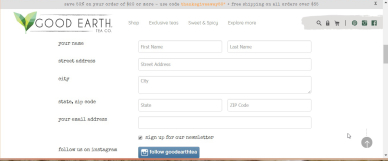This is the original FW wiki on spotting fake freebies that MumzOf2 & I provided information for. This is the reference referred to when someone ask how to recognize fakes from legitimate ones. As things change, I’ll update this wiki to keep it current.
How to spot a possible fake scamming, spam harvesting, phishing website.
This information is copied and pasted from another thread where the OP asked how to determine the validity of some of the questionable ones out there
SweetClover said:
Some tipoffs are how recent the site is, the fact that it isn’t affiliated with the manufacturer, that it adds weird disclaimers that basically absolve them of sending you anything, among other things. To further confirm my suspicions, I do a network ‘whois’ search. You will see others do this too, they use an online tool that allows them to research the domain. Here are a few I use, the first I have had/used the longest.
Domain Dossier
This is an oldie but goody, been on the net as long as I (1998), and offers several type of domain lookups. I recommend checking the domain & network whois boxes (the two on the left).
ARIN Whois No longer active.
All Nettools Smart Whois Lots of great tools here, the SmartWhois will give you info about the domain & network.
With any of the above, enter the IP address of the offer in the dialogue box, and click submit. You get a complete history of the domain, who created it, when it was created, the server hosting it. Anything new with 1 year or less licenses is most likely a fraud, intended to harvest for spam, or phish for information. Other signs are who is hosting the domain, and who is the registrant. Common sources such as HostGator, GoDaddy & DomainsByProxy are commonly used. Images are frequently hosted on a Cloudfront server. Images are often stock images manipulated in photoshop to add custom logo’s.
There are a lot of bogus offers being put up on the intrawebs lately, obviously intended to sucker in the clueless with a freebie. Chances are, if it’s not the manufacturer, or a reputable company authorized by the manufacturer (Like WalMart, StartSampling, etc.), it’s a fake offer.
MumzOf2 said:
(username removed), after a while you’ll know a bad site just by looking at it and it will prompt you to look up the domain. I can’t explain it, but the site will just have a look to it. Google ADS…if it’s a site only a few days old usually by weeks end it will be full of Google Ad Sense, a full size product too good to be true type of thing, the graphics, etc… Plus at the bottom of the page it will say not endorsed by such and such company like one other member mentioned.
Some bad phishing sites are better at making their site look more professional, but usually a few links will always be “under construction.”
SweetClover said:
And to add, if you have any doubt, those Whois domain searches will give you lots of clues. I keep them bookmarked, so I have access to them at any given time. MumzOf2 is right, the site will just look ‘off’ for some reason, usually cheap layout, and such. A legitimate site will have a professional layout to it. These phishing/scamming/spamming sites, all are very amateurish looking. Some of these have been around for years, though, so sometimes you only find out by experience. KCWEB is an example of this. They’ve been scamming and spamming since I went online 10 years ago.
More info: If you don’t see the offer on the website elsewhere, that indicates a possible hack. So the next step is to see if the company uses social media, and was this an offer exclusive to their social media accounts. If found on social media, that legitimizes the post. The social media account from which the the offer was posted, belongs in the OP.
Post your link, then go to the link, then check the homepage for a freebie link. None there? Try the main product page (because sometimes it’s there instead). Still nothing? It’s either a) a hack, or b) it’s source is elsewhere. Next step, check social media accounts linked on website. Is it posted on the official FB, Twitter, other social media account? If yes, that’s your source. Go back, edit your OP, and show the social media account where the offer originated. If no, there’s a very good chance the freebie page is a fake inserted by a hacker. In that case, edit OP and indicate that offer may not be legitimate, and possible fake, because you couldn’t find a legitimate source for it on the website, or social media.
It’s important to have sources for freebie links, to verify their authenticity. Scammers count on lack of knowledge & info to take advantage of unsuspecting freebie hunters, and getting them to freely give their NAZ, email & sometimes phone #'s. They then sell this to list aggregators, who then sell the lists.


